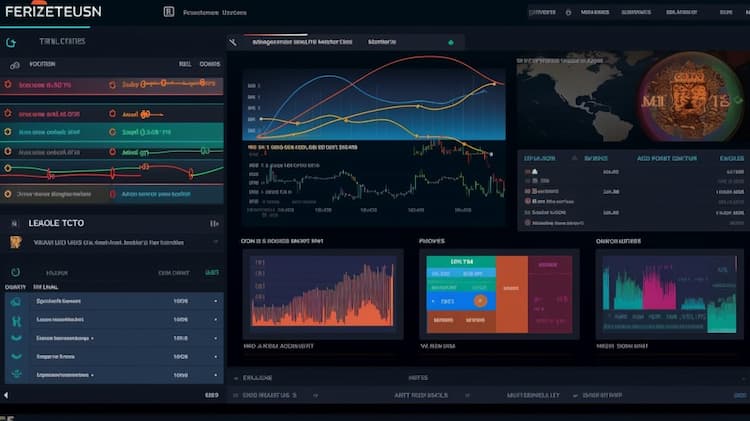
What is EZU?
In the world of finance, exchange-traded funds (ETFs) have gained significant popularity among investors due to their flexibility, diversification, and ease of trading. One such ETF that has attracted attention is EZU, which stands for iShares MSCI Eurozone ETF. In this article, we will delve into the details of EZU, answering frequently asked questions and shedding light on its characteristics and benefits.
What is EZU and How Does It Work?
EZU is an ETF that aims to track the performance of the MSCI Eurozone Index, a benchmark representing large and mid-cap companies in the Eurozone region. By investing in EZU, you gain exposure to a diversified portfolio of Eurozone stocks, allowing you to participate in the economic growth of the region. The fund's holdings include companies from various sectors, such as financials, industrials, consumer discretionary, and healthcare.
Why Invest in EZU?
Investing in EZU offers several advantages. Firstly, it provides broad exposure to the Eurozone market, allowing you to benefit from the performance of multiple companies across different sectors. Additionally, EZU offers diversification, reducing the risk associated with investing in individual stocks. Moreover, as an ETF, EZU is traded on major stock exchanges, providing liquidity and flexibility for investors to buy and sell shares throughout the trading day.
 EZU overlap What is EZU?
EZU overlap What is EZU?
Key Considerations for EZU Investors
Before investing in EZU, it is crucial to understand certain aspects. Firstly, investors should assess their risk tolerance and investment objectives to determine if EZU aligns with their financial goals. Additionally, it is important to review the expense ratio, which represents the annual cost of owning the ETF. EZU's expense ratio is relatively low compared to many other actively managed funds, making it an attractive option for cost-conscious investors. Furthermore, keeping track of the performance of the Eurozone market and understanding its economic outlook is essential for making informed investment decisions.
How to Invest in EZU?
To invest in EZU, you can open an account with a brokerage firm that offers access to ETFs. Once your account is set up, you can search for EZU using its ticker symbol and place a buy order. It is important to note that brokerage firms may charge commissions or fees for executing trades, so it is advisable to compare costs and services before selecting a platform. Additionally, regular monitoring of your investment and periodic rebalancing can help ensure your portfolio stays aligned with your investment goals.
In conclusion, EZU, the iShares MSCI Eurozone ETF, offers investors exposure to a diversified portfolio of Eurozone stocks, enabling them to participate in the region's economic growth. By investing in EZU, individuals can enjoy the benefits of diversification, liquidity, and cost-effectiveness. However, it is important to conduct thorough research, consider your investment objectives and risk tolerance, and consult with a financial advisor before making any investment decisions.
Disclaimer: This article does not provide any investment advisory services.
Source 1: EZU issuer website Source 2: Reuters article about EZU
EZU quote and analysis
Discover the top holdings, correlations, and overlaps of ETFs using our visualization tool.
Our app allows you to build and track your portfolio.
To learn more about the EZU iShares MSCI Eurozone ETF, access our dedicated page now.
FAQ
What does EZU mean?
EZU is the ticker symbol for the iShares MSCI Eurozone ETF. It represents an exchange-traded fund that aims to track the performance of the MSCI EMU Index, providing investors with exposure to equities from the Eurozone countries.
Is EZU suitable for long-term investment?
The suitability of EZU for long-term investment depends on individual financial goals, risk tolerance, and market conditions. It is advisable to conduct thorough research, analyze the potential risks and rewards, and consider consulting with a financial advisor before making any long-term investment decisions.
Are there any alternatives to EZU for investing in the Eurozone?
Yes, there are alternative ETFs and investment options available for investing in the Eurozone. Some examples include other Eurozone-focused ETFs or mutual funds that provide exposure to European equities. It is recommended to compare the features, costs, and performance of different investment options and consider individual investment goals before making a decision.
What are the risks associated with investing in EZU?
Risks associated with investing in EZU can include general market risks, political and economic uncertainties within the Eurozone, currency exchange rate fluctuations, volatility in European stock markets, and risks specific to individual countries within the Eurozone. It is important to consider these risks and conduct thorough research before making investment decisions.
What is EZU?
EZU is an exchange-traded fund (ETF) that represents the iShares MSCI Eurozone ETF. It holds a portfolio of stocks from companies listed in the Eurozone countries, providing investors with exposure to the equity markets of the Eurozone.



